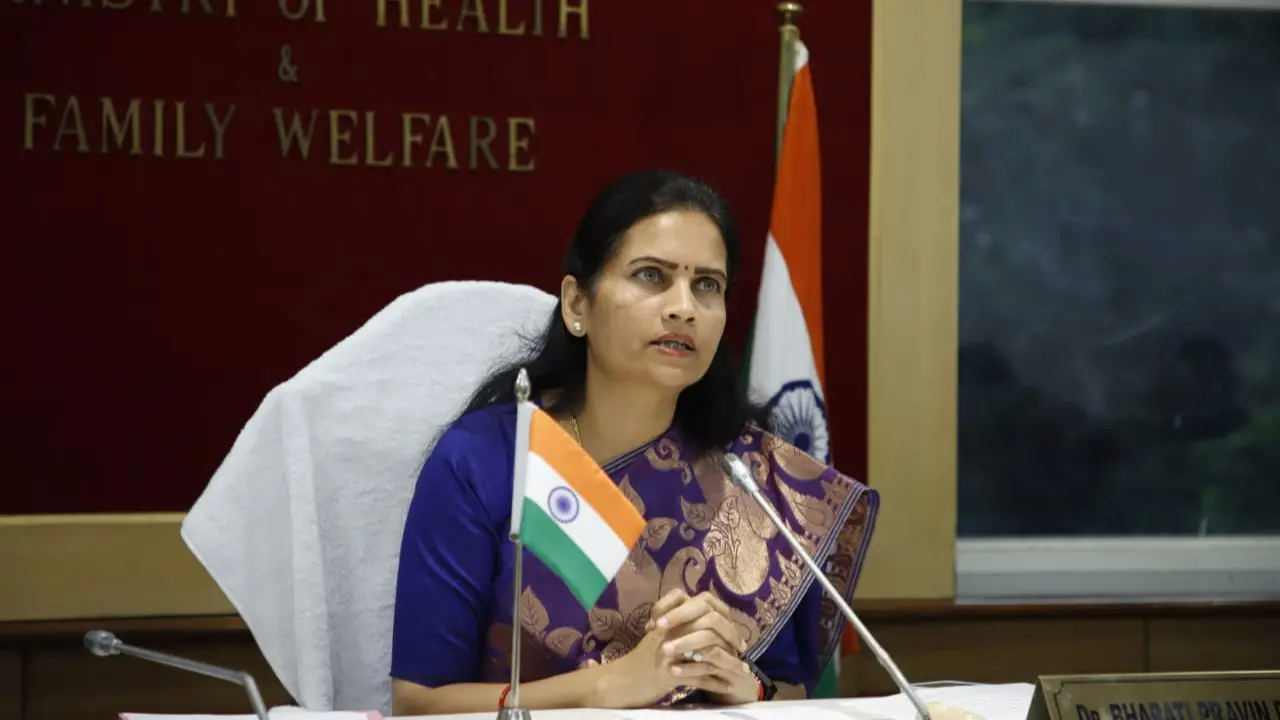World Health Summit 2023
During the World Health Summit 2023, Dr. Bharati Pravin Pawar, Union Minister of State for Health and Family Welfare in India, highlighted India’s resolute commitment to addressing non-communicable diseases (NCDs) comprehensively. She emphasized the importance of preventive measures, early intervention, and effective management to diminish the impact of NCDs on the health of the Indian population. In this article, we will delve into India’s endeavors to combat NCDs, focusing on key initiatives and approaches.
The Pioneering 75/25 Initiative: Transforming NCD Care
Dr. Pawar emphasized India’s groundbreaking “75/25 initiative,” which aims to provide standard care for 75 million individuals with hypertension and diabetes by 2025. This initiative represents a significant step in extending NCD care within primary healthcare settings on a global scale. It reflects India’s commitment to enhancing crucial social indicators such as life expectancy and maternal mortality rates.
New Budgetary Focus: Hypertension and Diabetes Treatment
In a notable development, the Outcome Budget document for 2023-2024 now includes hypertension and diabetes treatment as output indicators for the first time. This underscores the Indian government’s determination to expand services for these NCDs, reaffirming its resolve to confront these health challenges.
National Program for Preventing and Controlling NCDs
In 2010, the Indian government initiated the National Program for Prevention and Control of Non-Communicable Diseases (NP-NCD) under the National Health Mission (NHM). This program’s objective is to enhance infrastructure, develop human resources, promote health, facilitate early diagnosis, and improve management and referrals. Dr. Pawar underscored how the Ayushman Bharat initiative translates this policy into budgetary commitments, aligning with Sustainable Development Goals (SDGs) and Universal Health Coverage (UHC).
Population-Based NCD Screening
To effectively combat NCDs, the Union Health Ministry has implemented Population-Based Screening (PBS) under the Comprehensive Primary Health Care (CPHC) at Ayushman Bharat- Health and Wellness Centers. This initiative targets individuals aged 30 and above for risk assessment and screening for common NCDs, such as hypertension, diabetes, oral cancer, breast cancer, and cervical cancer. These services are delivered by well-trained frontline healthcare workers, ensuring continuity of care through all levels of healthcare delivery systems.
Teleconsultation Services and Technological Advancements
India has harnessed technology to improve healthcare accessibility. The e-Sanjeevani platform offers teleconsultation services for NCDs, overcoming geographical constraints and enhancing access to care.
Wellness and Promotion of Healthy Lifestyles: World Health Summit 2023
India’s approach to addressing NCDs extends beyond treating diseases. Health & Wellness Centers prioritize community wellness. Collaborations with other ministries, such as the Ministry of Youth Affairs and Sports and the Ministry of Ayush, support initiatives like the Fit India Movement and yoga-related activities. Furthermore, the government observes International and National Health Days and utilizes various media channels to raise awareness about NCDs and promote healthy lifestyles.
Digital Health Technologies for NCD Management
Digital health technologies play a pivotal role in enhancing healthcare delivery. The National NCD portal captures primary-level information and establishes a Single Longitudinal Health Record for every individual. This ensures data availability and continuous care through a Unique Health ID (ABHA ID).
Conclusion: World Health Summit 2023
Dr. Bharati Pravin Pawar reiterated India’s steadfast commitment to preventing and controlling NCDs and commended global efforts in this vital domain. She emphasized the need for countries to collaborate and share successful strategies, underscoring the interconnectedness of global health. India’s commitment reflects a broader ethos of unity and shared responsibility for the well-being of our global community. In the spirit of ‘One Earth, One Health,’ India advocates for a collaborative approach to collectively address the challenges posed by NCDs.
- Sarkari Result 2025, Latest सरकारी नौकरी Updates & Results
- IBPS PO Apply Online 2025 for 5208 Posts, Application Form Link
- Mensuration Practice Questions for SSC CGL, Solved Problems
- ESIC Stenographer Vs SSC CHSL, Complete Comparison Here
- SSC CHSL Previous Year Chemistry Questions, Solve PYQs

